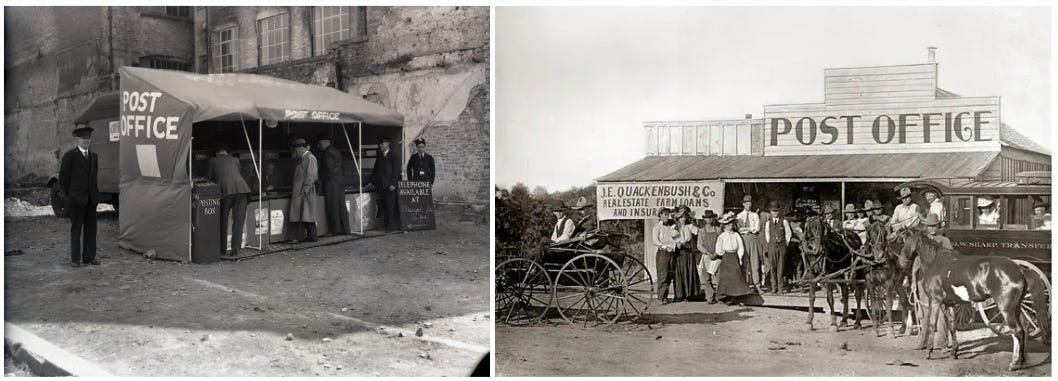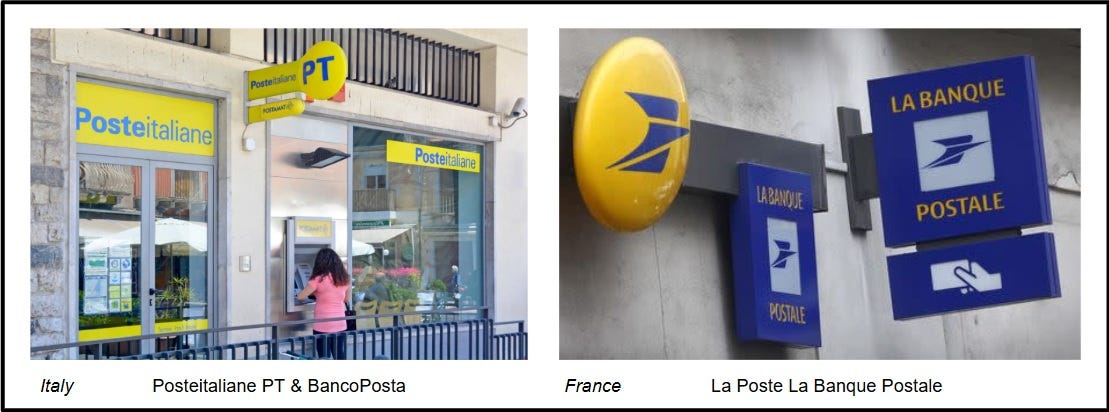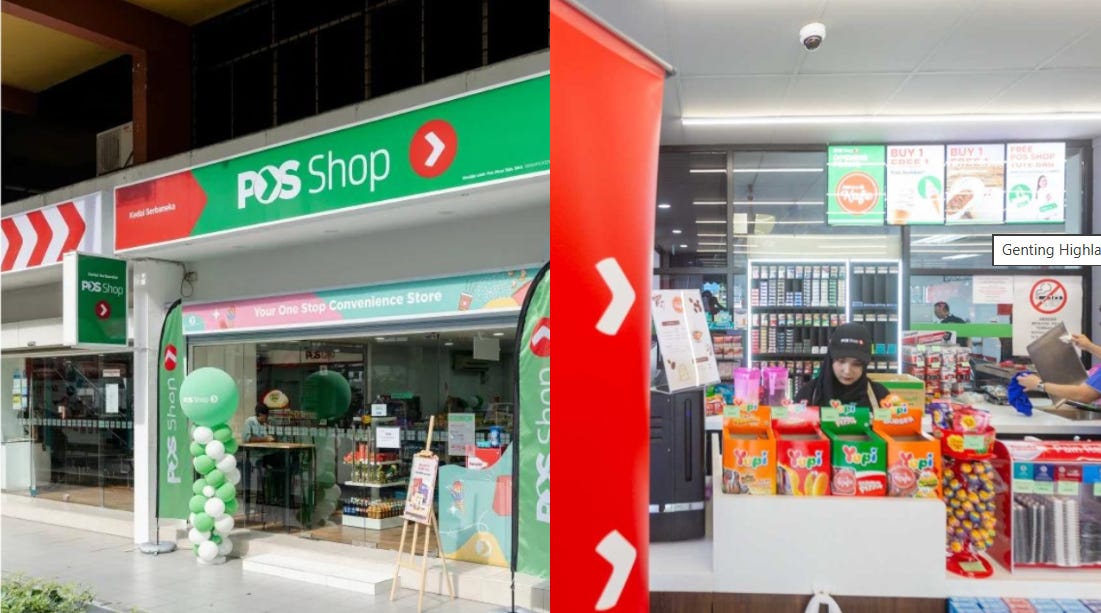Should postals be operating as private carriers?
We're so pre-occupied with "could we" that we haven't stopped to ask "should we?"
You know them well. Whether it’s USPS, Canada Post, Royal Mail, or AusPost, anyone who has ever purchased anything online has undoubtedly had much of their orders delivered by the postal service.
In fact, today the majority of consumers view their national postal operator as primarily a parcel delivery company.
But it wasn’t always like this. Once upon a time, postal operators primarily delivered letter mail.
The history of national posts vary widely — with the oldest continuously operating post being Swedish Post (ie Posten AB) since 1636 — but all around the world, national posts emerged with the same mission - to facilitate communication within their country.
This mission was eventually codified in the form of the Universal Service Obligation (USO), a concept ratified in many country’s laws that require the national to provide:
Nationwide letter mail coverage
Standardized pricing and services
Regular delivery schedules
Affordability, quality, and non discrimination
In 1874, the Universal Postal Union (UPU) was established via the Treaty of Bern, which created a global postal framework, and standardized procedures and rates for cross border mail.
Eventually the UPU became a specialized agency of the United Nations.
All of this went pretty smoothly until the age of eCommerce.
National posts for centuries invested hundreds of millions to billions to develop mail boxes, post offices, depots, hubs, and other delivery infrastructure required to deliver letter mail and small parcels to every resident in their respective countries.
They had 100% brand recognition among consumers, and in most countries a high level of trust. In many countries the national postal doesn’t just delivery letters and parcels, it may also be a bank, an insurance company, or even a convenience store.
There was a Dark Ages in which postal tried to used their legal monopolies to destroy competition from private letter couriers such as DHL, FedEx, and UPS, but postal eventually moved on as private letter couriers started to act more like commercial parcel delivery companies, and probably mostly important because there was enough business for everyone.
So as when online retail arrived on the scene and created unfathomable demand, the national posts, with their subsidized parcel delivery service, were pulled into the thick of online retails’ growth by merchants and shippers worldwide.
Postal operators didn’t plan for or foresee the rise of eCommerce, they just fell into it. And they fell deep.
WHAT DOES IT LOOK LIKE TODAY
Ecommerce Logistics is the golden child of both the postal world and the logistics world. While traditional logistics roughly marks economic growth, Ecommerce Logistics continues to outperform.
MASSIVE MAIL LOSSES
But remember the mail from earlier? Letter mail has been declining ever since the internet introduced email and was lit on fire as smart phones and instant messaging and communications took over.
As a result, postal operators, still on the hook for their USO’s, have not only been seeing declining mail revenue, but have been bleeding out from it.
Postal operators from PostNL to Canada Post have publicly called to attention the losses stemming from letter mail delivery.
ARE WE A LOGISTICS COMPANY NOW
With the majority of postal operators’ operations and revenue coming from delivering small parcels, and with continuously declining letter mail, postal operators are looking increasing like they are running a private parcel delivery business.
Look at any postal operators’ annual report and you’ll see management statement’s excitedly espousing the growth of eCommerce, and addressing strategies to grow with that market.
From developing innovative solutions around returns, to investing into out of home PUDO at scale, to even outright acquiring and operating private logistics companies, a number of postal operators have effectively become parcel delivery companies that also happen to have a USO.
Those that are succeeding at this are thriving. That are not, or doing it poorly are having trouble.
THE EMPEROR’S NEW CLOTHES
While some postal operators have successfully privatized, the majority of postal operators are still state owned which means they have a number of disadvantages:
Policy over profits
Slower decision making
Executives prioritizing stability and certainty over growth and innovation
The previous decades and centuries of investment into infrastructure and universal brand name recognition still give these postal operators a big advantage, but as the initial boon of online retail begins to fade, will postal operators, with their disadvantages, be able to keep up with the competition in the private sector?
As the parcel delivery business shifts increasingly towards innovation and technology such as AI, machine learning, robotics, and disruptive new business models like Amazon’s scaled gig delivery, can postal companies attract top engineering talent and keep up?
At the UPU Dubai Postal Congress in year, the US Department of State asked the congress to seriously reflect whether parcel delivery was a service that postal operators could compete with private operators on.
With the challenges that postal operators will be facing, particularly against the private sector, and in additional to the mounting losses that they are carrying from USO, the current situation is untenable.
THE MILLION DOLLAR QUESTION
"Without a relevant communications mandate, a post is just another logistics player and strategically irrelevant for the government."
- Dame Damevski, eBoksThere’s no denying that USPS already competes with FedEx and UPS, but the question we should be asking ourselves is — Tenable or not, profitable or not, should postals be operating as private parcel carriers?
The original purpose of the USO was to facilitate communication.
It was not to help online retailers deliver product.
This does not mean that postals should not provide parcel delivery. In fact, many are extremely good at that business and have the admiration of their private sector peers.
But as stated earlier, there is no limit to the number of busineses that a postal operator could engage in, but what SHOULD it engage in? Indeed, some postals are launching their own ecommerce marketpalces as well.
As long as there is a problem in the market, and a postal can address that need, there is no reason why it should not pursue if it is firstly customer and problem focused.
The origins of the post offices were that they provided a clear benefit to all residents of a country, and that service required an investment that no single private company would willing bear, and it was also a matter of national security and development.
If we were to keep to those roots - what role should the post office play?
REVISTING THE USO
Regardless of where a postal is in its current investment into delivery infrastructure or other businesses, postals can consider revisiting the spirit and nature of their USOs.
Not only do postals need to urgently address the losses stemming from letter mail delivery, but in fact postal could revisit what was the spirit of the USO at the time on inception?
If we applied a benefits ladder and 5 whys approach, to borrow two terms from digital product management, what would we end up with?
WHERE AM I GOING WITH THIS? Stay tuned for Part 2.








